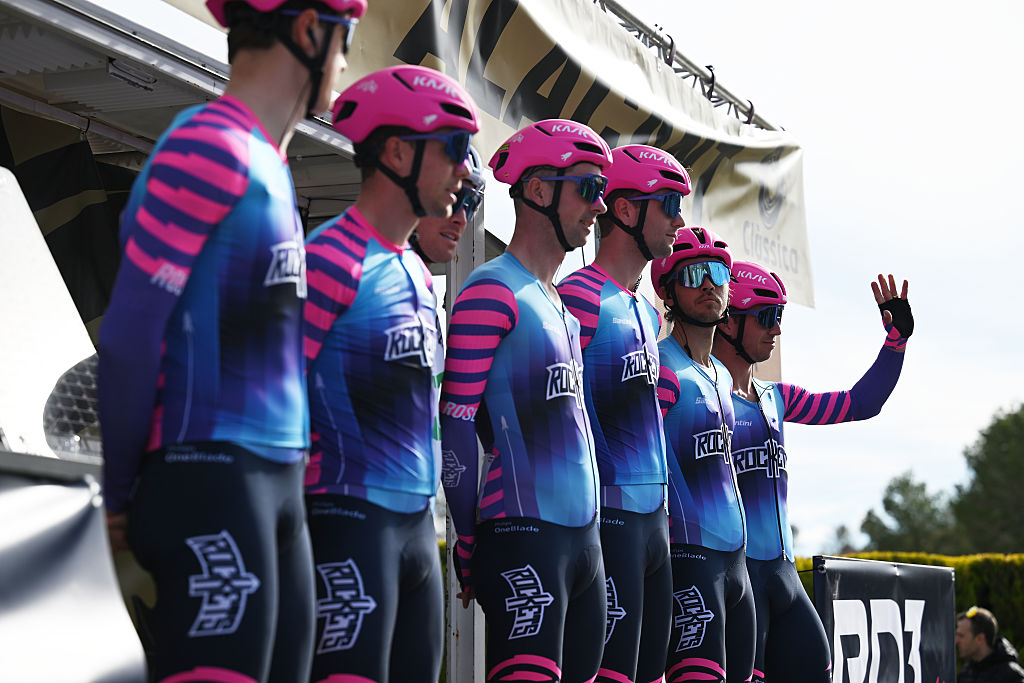Floyd Landis timeline: Tour comeback to doping confession
Detailing the denials through to confessions
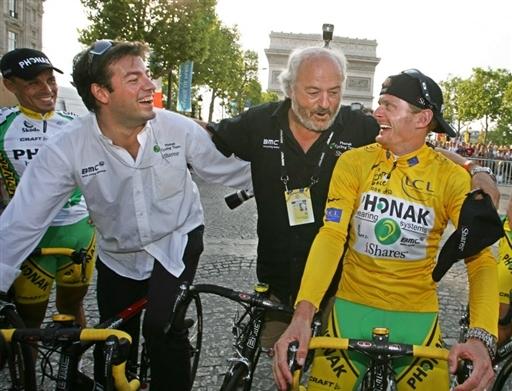
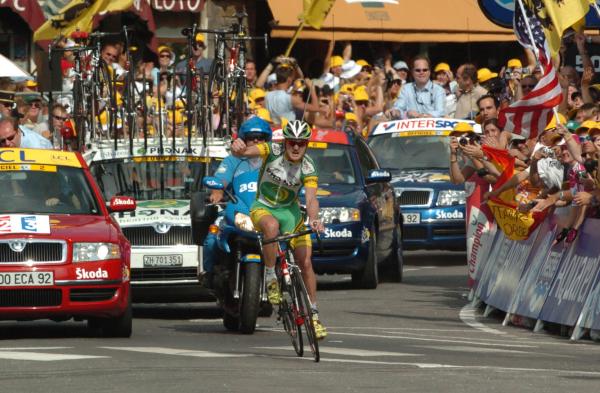
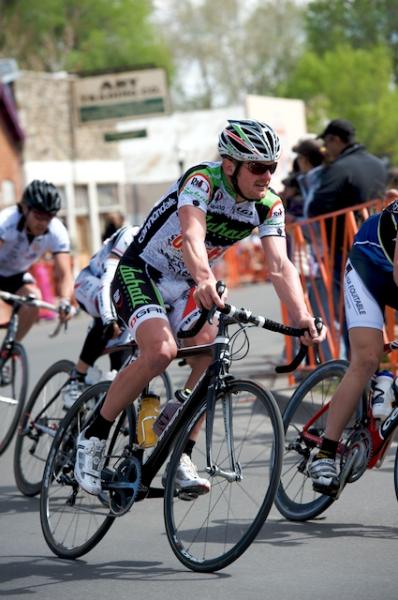
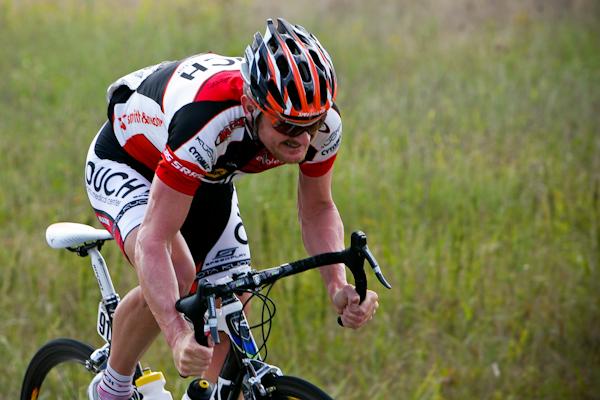
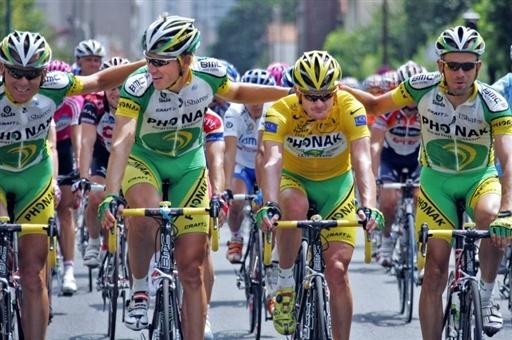
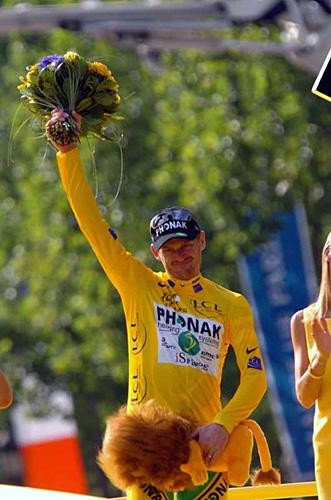
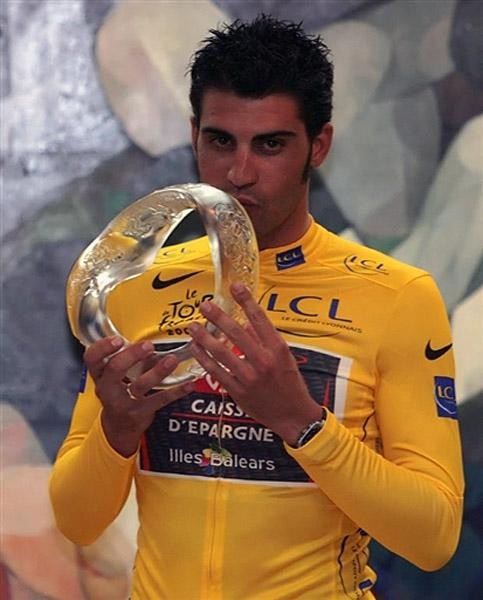
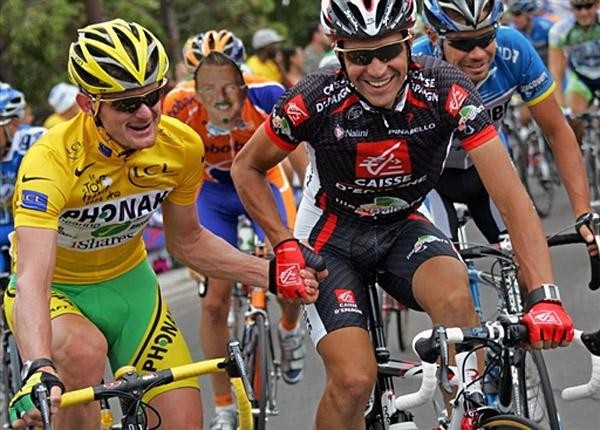
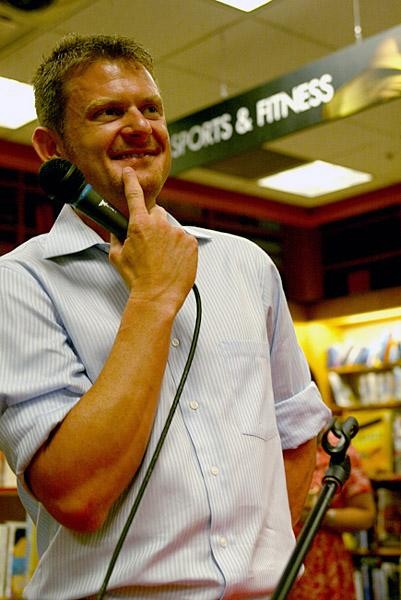
The last four years of Floyd Landis’ life have been anything but uneventful. Cyclingnews’ takes a look back at some of the key events that have taken place since Landis won the 93rd Tour de France’s Stage 17 through to his confession to doping from 2002-2006, and accusations against former colleagues that have surfaced this week.
Landis confesses to doping, implicates Armstrong and Bruyneel
Andy Rihs denies all claims made by Floyd Landis
WADA and UCI issue statements on Landis confession
Vaughters supports Zabriskie after Landis accusations
Armstrong rejects Landis allegations
Johan Bruyneel: Floyd Landis needs ‘help’
UCI rejects Landis' accusation of concealed doping test
Brailsford to study Landis’ allegations on Barry
Kimmage: Landis allegations will decide the sport’s future
Team RadioShack reveal further emails from Landis
2006
July 20: Landis stages a remarkable comeback on the 93rd Tour de France’s Stage 17, winning the stage solo with a ride that brought him back into overall contention. One day earlier he had a spectacular collapse that saw him concede over eight minutes to overall rivals Carlos Sastre, Oscar Pereiro, Andreas Klöden and Cadel Evans.
July 23: Landis is crowned the winner of the 93rd Tour de France and pulls on the final yellow jersey on Paris’ Champs-Elysées.
July 27: The International Cycling Union announces a positive A-sample from a Tour de France test. Later that day Phonak confirmed it had received a letter from the UCI informing the team that Landis’ A sample from Stage 17 had registered an unusual testosterone/epitestosterone ratio.
July 28: Landis denies doping when he breaks his silence in an interview with Sports Illustrated. "I wouldn't hold it against somebody if they don't believe me," he said.
August 5: The UCI announces that analysis of Landis’ B sample confirmed the A sample’s “adverse analytical finding”. Later that day Landis’ attorney Howard Jacobs released a statement, which said: “Landis, who has not used performance-enhancing substances, maintains his innocence in this case and believes that he will be vindicated of the doping charges.”
The latest race content, interviews, features, reviews and expert buying guides, direct to your inbox!
August 15: Phonak Cycling Team owner Andy Rihs announces the team would be disbanded at year’s end. The decision came in the wake of Landis’ doping case, after which Barclays Bank brand iShares withdrew its sponsorship arrangement for the following season. “I am bitterly disappointed that the sport of cycling apparently has become a synonym for doping," said Rihs
August 17: Landis' father-in-law, David Witt, is found dead in his car in a parking lot in North Park, San Diego, having shot himself. Landis would later tell The Mail on Sunday: "I don't know why he did it, but I'd be deluding myself if I thought the dope case did not play a big part in his stress.”
September 11: Jacobs formally requests the US Anti Doping Agency drop its case against Landis. It followed a review of the 370 pages of documentation provided by the LNDD laboratory at Chatenay-Malabry, in which Jacobs’ team found inconsistencies in the way the urine sample was handled that call into question the validity of the result.
September 24: USADA announces it will proceed with the case after reviewing Jacobs’ request.
October 13: Landis releases a presentation as part of his defense which claims “the whole process has been full of errors”. Jacobs told Cyclingnews he hoped the document would go some way to restoring Landis’ public reputation at the case’s end.
November 14: French police reveal it’s investigating a possible violation of the Châtenay-Malabry anti-doping laboratory’s (LNDD) e-mail server. It came after the UCI, International Olympic Committee (IOC) and World Anti-Doping Agency (WADA) received e-mails disguised as originating from LNDD, calling the lab’s competency into question.
November 17: Landis describes any link between the LNDD e-mail investigation and he or his defense team as: “baseless, untrue, irresponsible and another example of the character assassination that I have faced since the initial allegations surfaced in July”.
November 23: Landis appears on HBO’s Real Sports with Bryant Gumbel, in an interview where he claims to have never seen anyone taking performance enhancing drugs. "Have you ever seen or been recruited to take performance enhancing drugs?" asked Gumbel with Landis answering simply, "No."
2007
January 7: Landis' press advisor Michael Hensen announces the formation of the Floyd Fairness Fund, which would accept donations to assist with the cost of the rider’s defense. Its mission was described as: "To support Floyd Landis against unsubstantiated doping allegations, to provide the means to attain fairness for Floyd, and to bring justice to those responsible for misconduct in the case."
January 13: The French anti-doping agency (AFLD) requests Landis’ presence at a hearing on February 8 to determine whether the rider will ever be allowed to compete on French soil, should he ever return to competition.
February 8: Landis agrees to not compete in the 2007 Tour de France and AFLD agrees to delay his hearing over competing in France until the outcome of the USADA hearing. On the same day the date for his US hearing is set as May 14, 2007.
February 9: Arbitrators for USADA hearing are announced as Christopher Campbell, selected by Landis; Richard McLaren, selected by USADA; and Patrice Brunet, whom the other two arbitrators chose as the panel's chairman.
February 10: Landis labels a request by the USADA to re-test the rider’s six other B samples from the 2006 Tour de France as “illegal”. Only one of his six samples from the Tour registered abnormalities. The original re-test came from USADA general counsel Travis Tygart.
April 12: The panel grants the USADA its request to have LNDD test the 'B' urine samples taken during the race, even though the 'A' samples collected simultaneously tested negative. Only the positive sample had been subjected to carbon isotope testing to determine whether the source of the testosterone was not naturally made in his body.
April 17: French lab commences carbon isotope testing of Landis’ B samples despite the rider requesting the testing take place at a lab in Los Angeles, USA.
April 23: French newspaper L'Equipe claims the B samples show traces of synthetic testosterone. Landis’ camp claims its expert, former UCLA antidoping laboratory director of clients Paul Scott, was refused entry to the lab to observe the testing.
April 26: Seven time Tour de France winner Lance Armstrong offers his support to Landis’ criticisms of the French lab. "I believe in Floyd, I believe he hasn't had a fair shake. I don't trust the lab," Armstrong told Associated Press.
April 30: Simon Davis, a technical consultant for Landis, claims LNDD destroyed original evidence from the re-tests. "Critical evidence stored as electronic data files had been erased from the hard drive and the original data destroyed at the LNDD. The existing data bears indication of alteration," he said.
May 11: Landis claimed USADA offered him a shorter sentence in return for incriminating information against Armstrong. "It was clarified for me that if I gave information that would incriminate Lance then I would be given a shorter sentence," he said.
May 14: Landis’ arbitration hearing commences at the Darling Trial Courtroom at Pepperdine University’s School of Law in Malibu.
May 18: Former professional cyclist Greg LeMond took to the stand at Landis’ arbitration hearing, revealing publicly for the first time that he had been sexually abused as a child. LeMond’s testimony was turned on its head when he revealed that he received a threatening phone call the night before testifying, allegedly from Landis' business manager Will Geoghegan, based upon the number that appeared on LeMond's mobile phone records.
May 19: Geoghegan issues a public apology to LeMond after being cut loose by the Landis camp.
May 20: Landis takes to the stand were he testifies his innocence under oath. While being examined, Jacobs asks: 'Did you ever use testosterone or any performance enhancing substances during your time with the US Postal Service Team', to which he replied ‘no’.
May 23: Closing arguments are heard at the end of Landis’ arbitration hearing.
July 10: Landis starts touring the United States of America to promote his new book Positively False: The Real Story of How I Won the Tour de France, while he awaits the outcome of the USADA hearing.
September 16: Arbitrators announces the official closing of Landis’ hearing, after months of anticipation. The move signals an imminent release of its findings.
September 21: The American Arbitration Association announces Landis has lost his appeal against a two-year suspension for his positive drug test from the 2006 Tour de France. The three member arbitration panel was split two-one in the guilty verdict, with Campbell dissenting.
September 22: The UCI strips Landis of his Tour victory and announces Spain’s Pereiro as the race’s winner.
October 11: Landis announces he will appeal the AAA decision to the Swiss Court of Arbitration for Sport, his final avenue of appeal against the sanction. "Knowing that the accusations against me are simply wrong, and having risked all my energy and resources – including those of my family, friends and supporters – to show clearly that I won the 2006 Tour de France fair and square, I will continue to fight for what I know is right," Landis said in a statement posted on the Floyd Fairness Fund web site.
October 21: Landis’ appeal to CAS is formally filed.
2008
March 19: Landis’ case is presented to CAS at a closed-door hearing in New York City.
June 30: CAS announces its findings in the case of Floyd Landis vs. USADA, ruling against Landis. The decision not only upheld the full two-year suspension, back-dated to January 30, 2007, but found Landis had to pay USADA costs of $100,000USD.
September 10: Domestic squad HealthNet-Maxxis announces its signed Landis to ride for it after his suspension ends in early 2009.
September 29: Landis lodges challenge to CAS findings with US Federal Court. The rider’s motion included a request to overturn the $100,000USD bill for USADA’s costs.
December 2: The US Federal Court case is dropped by Landis after he reaches a settlement agreement with USADA. Terms of the settlement were not disclosed, however it brought an end to the legal wrangling over Landis’ 2006 doping tests.
2009
January 30: Landis’ back-dated suspension comes to its conclusion and the rider is allowed to return to competition in events sanctioned by the UCI and organizations under its rule.
February 14: After serving his two year suspension Landis returned to his first major race since the 2006 Tour de France at the Tour of California.
April 19: L’Express, a French newspaper, claims information obtained by hacking the LNDD network was transmitted to a lab in Canada from the computer of Landis’ former coach Arnie Baker.
May 29: French authorities summon Landis and former coach Baker to testify before French investigators looking into the illegal hacking of data from LNDD.
November 1: Landis admits in an interview with The New Zealand Herald that he never expects to contest the Tour de France again.
November 17: Landis’ amicable departure from Ouch Pro Cycling is announced, with the rider hoping to return to the longer stage races of Europe.
2010
February 16: French Judge Thomas Cassuto issues an arrest warrant for Landis in connection with the data hacking case at LNDD.
March 10: Landis announces he will join the newly formed Bahati Foundation squad. He was believed to have previously been in talks with Rock Racing in the hope the squad would secure a Professional Continental license, which never eventuated.
April 30: Landis sends an e-mail to USA Cycling’s chief executive officer Steve Johnson, which includes his own confession to doping from 2002 to 2006. The e-mail also implicates Johan Bruyneel, Lance Armstrong, George Hincapie, Matthew White, Allen Lim and Michael Barry in either the use of performance enhancing drugs or facilitating doping practices.
May 1: Johnson forwards Landis’ e-mail to the United States Anti Doping Agency’s Tygart, highlighting that the allegations made are the domain of the USADA. Copied on the e-mail is the USADA’s Stephen Starks, USA Cycling's Board of Directors President Bill Peterson, International Cycling Union president Pat Mcquaid, USAC counsel David Tenner and Landis himself.
May 19: Johnson’s e-mail to Tygart, which contains Landis’ original e-mail, is leaked to Cyclingnews and other selected media outlets. The e-mail is forwarded using online service anonymousfeedback.net, so the identity of whoever leaked the information to media is unknown.
May 20: Armstrong, Bruyneel, Rihs and Hincapie all deny the allegations made against them by Landis. The UCI also issued a statement dismissing the allegations against it, while Lim wouldn't comment on the allegations when contacted before the story was published.
May 21: Team Radioshack releases more e-mails from Landis which are directed at both Armstrong and Amgen Tour of California race director Andrew Messick.
